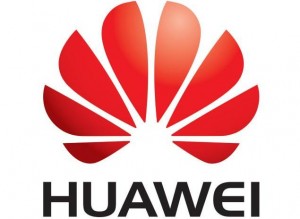Last week saw a little skirmish in the mobile platform wars, when news broke that Huawei, which makes smartphones based on Google’s Android OS, was working on an operating system of its own — first reported by Reuters and then picked up by others. Curious to hear from the horse’s mouth, we got in touch. And it turns out that Huawei, in fact, has “no plans” to launch an OS any time soon.
From a Huawei spokesperson, via email:
Huawei has no plans to launch a proprietary operating system in the foreseeable future. Our innovation strategy is governed by our commitment to provide our customers and consumers with products that enhance communication based on open collaboration. To this end, we will continue to work closely with our industry partners around the world, and invest in research and development, to bring together hardware and software that best meet consumers’ needs.
She also apologizes for the “confusion” that may have been created by the Reuters story. That story quoted the CEO of Huawei’s device business, Wan Biao, describing how Huawei was developing in new areas to meet consumer demands, while also making sure that it would be able to provide for them in the event that relationships change with current partners: in addition to Google, Huawei also makes devices on the Windows Phone platform from Microsoft.
“Whatever consumers like, we’ll develop,” he told the news service, adding: “We’re also devoting resources into coming up with a phone operating system based on our current platform in case other companies won’t let us use their system one day.”
This looks like, for now, Huawei is probably developing something, but more as an option in reserve, rather than looking to put out a device that would compete against other platforms it is already using.
This is not the first time that Huawei has been reportedly talking about its own mobile platform. Earlier in September, its founder Ren Zhengfei also was reported to be talking to an R&D team at Huawei about developing a platform for the same reason — in case one of its existing partners changed its tune. That story also got denied by Huawei.
But there is a big opportunity for Huawei if it does decide to offer its own mobile OS on smartphones. Huawei started its life as an equipment maker and has an extensive business and relationship with carriers around that. And within that business, it’s particularly strong in emerging markets.
Building low-cost smartphones for these users, on a pared-down proprietary OS that, for example, provides a better link between the carrier and user, could give Huawei a leg up in these markets. (Android and Apple’s iOS, for all their popularity, do not leave much room for carriers to put their own stamp on the product with their own suite of services.) It helps, too, that markets like China have proven very receptive to the idea of smartphone platforms that are localized and customized. And it helps, too, that worldwide, consumers are showing an increasing appetite for smartphones at the expensive of lower end devices.
Huawei projects that this year it will ship 100 million mobile devices, 60 million of them smartphones. Gartner says Huawei is the sixth-biggest handset maker in the world, as of Q2, with a 2.1% market share. In the top-1o, it’s notable that Huawei, ZTE and TCL are growing share, along with Samsung and Apple, as more established players like Nokia and Motorola continue to decline. Huawei has said that its aim is to become the number-three smartphone vendor after Samsung and Apple by 2015.
Huawei is not alone in the area of OEMs that are Android partners now but may consider doing something completely different in the future.
ZTE, which has a track record of building proprietary operating systems (here’s one it released last year for desktop cloud services), also gives us a “no further information to share” in response to questions about whether it look at launching something proprietary for mobile devices as well.
Apart from whatever proprietary services there may be, there are other collaborations underway. ZTE is also a partner for Mozilla’s new Firefox Mobile OS, with these devices expected to launch next year. A report out last week from Strategy Analytics however points to a big hurdle ahead to challenge established players like Android and iOS, at least in the short term: Firefox Mobile devices will only account for 1% of shipments in 2013, it says.
That kind of statistic, points to the kinds of challenges that ZTE and Huawei face when considering what they might do next, and could be one reason why they are so cagey to answer more questions about the future.
